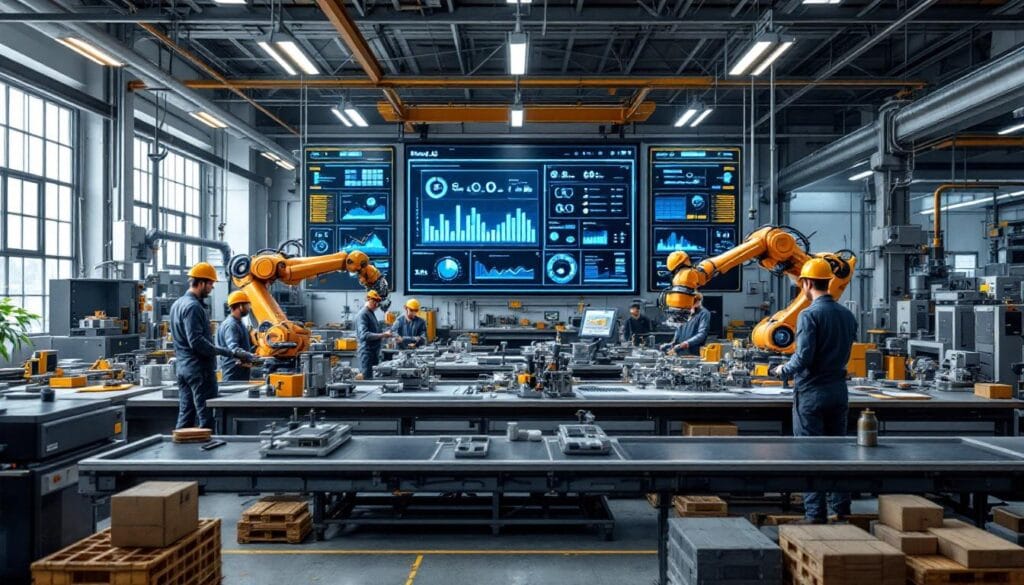The transition to Industry 4.0 takes a new step forward thanks to digital transformation, but challenges remain for manufacturers. A survey reveals that while access to these technologies is revolutionizing the manufacturing sector, the talent shortage remains a major obstacle. The quest for specialized skills in artificial intelligence and automation underscores the importance of human resources at the heart of this revolution. With more than half of European manufacturers involved, the study highlights the progress and challenges faced by those navigating this era of advanced transformation.
A European survey reveals that digital transformation continues to accelerate access to Industry 4.0; however, manufacturers face persistent challenges. Among these obstacles, the talent shortage remains a major issue, highlighting the importance of the human element in this process. Conducted among over 200 European manufacturers, each employing more than 500 people, the survey shows that 63% of participants still encounter various pitfalls on their path to industrial digitization.

Table des matières
Togglesurvey on digital transformation in Industry 4.0
The results of a European survey conducted with over 200 manufacturers reveal that 63% of them recognize the potential of digital transformation to amplify automation and optimization. Industry 4.0 is now within reach, supported by technologies such as artificial intelligence, significantly contributing to revolutionizing manufacturing. However, French companies show a still timid maturity in facing these advancements, confronted with persistent challenges. Although these obstacles are acknowledged, efforts to overcome these difficulties are already underway.
digital challenges and the importance of human resources
Although the digital advancement is undeniable, companies face the crucial challenge of the talent shortage. The relentless search for suitable skills emphasizes the importance of combining technical know-how with human expertise. This complex situation reinforces the paradigm where technology alone is not enough; human beings remain at the heart of the transformation. Technological progress must be accompanied by increased efforts to attract and train talent capable of integrating this revolution while maintaining the necessary balance within organizations.
impact of advanced technologies on businesses
In the landscape of the manufacturing sector, the integration of the Industrial Internet of Things and other advanced technologies is no longer a distant aspiration; it is already being experienced by those who have taken the digital turn. By facilitating real-time data analysis, these tools provide companies with the opportunity to optimize their processes and increase their flexibility. Leaders engaged in this trajectory thus recognize the importance of focusing on the subtle yet crucial impact of technological frameworks that have transformed and continue to refine the structure and health of their businesses. The promise of Industry 4.0 lies in this dynamic of constant and resilient progress.




